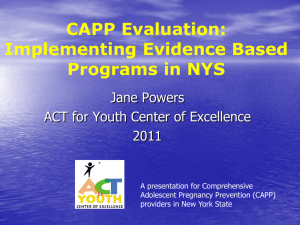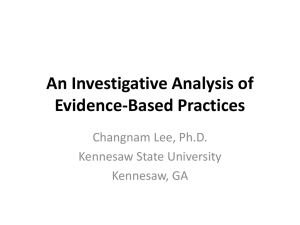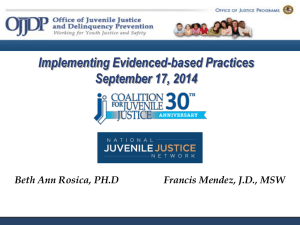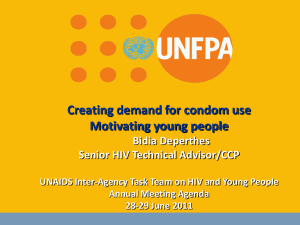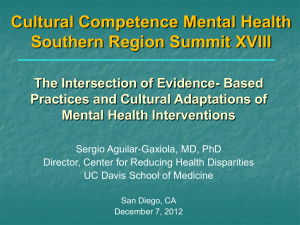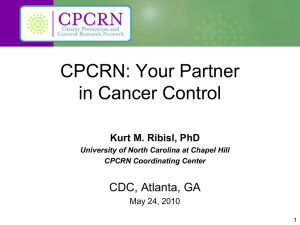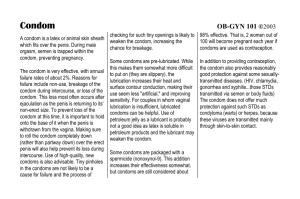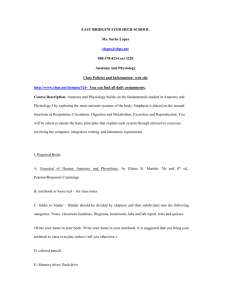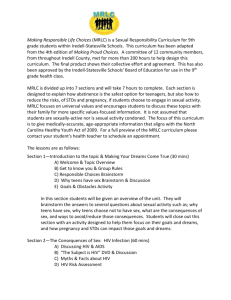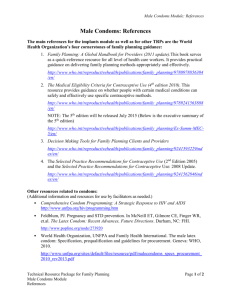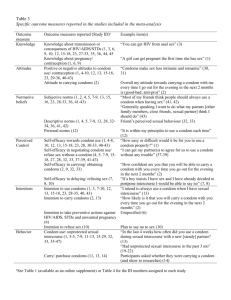Word format - ACT for Youth
advertisement
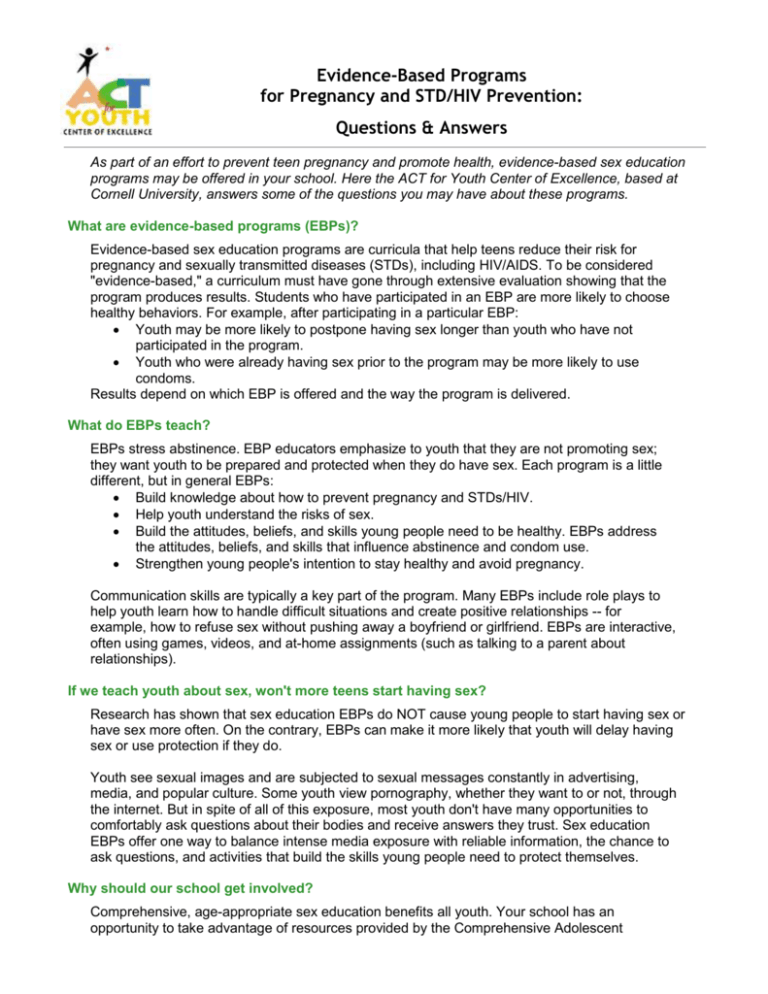
Evidence-Based Programs for Pregnancy and STD/HIV Prevention: Questions & Answers As part of an effort to prevent teen pregnancy and promote health, evidence-based sex education programs may be offered in your school. Here the ACT for Youth Center of Excellence, based at Cornell University, answers some of the questions you may have about these programs. What are evidence-based programs (EBPs)? Evidence-based sex education programs are curricula that help teens reduce their risk for pregnancy and sexually transmitted diseases (STDs), including HIV/AIDS. To be considered "evidence-based," a curriculum must have gone through extensive evaluation showing that the program produces results. Students who have participated in an EBP are more likely to choose healthy behaviors. For example, after participating in a particular EBP: Youth may be more likely to postpone having sex longer than youth who have not participated in the program. Youth who were already having sex prior to the program may be more likely to use condoms. Results depend on which EBP is offered and the way the program is delivered. What do EBPs teach? EBPs stress abstinence. EBP educators emphasize to youth that they are not promoting sex; they want youth to be prepared and protected when they do have sex. Each program is a little different, but in general EBPs: Build knowledge about how to prevent pregnancy and STDs/HIV. Help youth understand the risks of sex. Build the attitudes, beliefs, and skills young people need to be healthy. EBPs address the attitudes, beliefs, and skills that influence abstinence and condom use. Strengthen young people's intention to stay healthy and avoid pregnancy. Communication skills are typically a key part of the program. Many EBPs include role plays to help youth learn how to handle difficult situations and create positive relationships -- for example, how to refuse sex without pushing away a boyfriend or girlfriend. EBPs are interactive, often using games, videos, and at-home assignments (such as talking to a parent about relationships). If we teach youth about sex, won't more teens start having sex? Research has shown that sex education EBPs do NOT cause young people to start having sex or have sex more often. On the contrary, EBPs can make it more likely that youth will delay having sex or use protection if they do. Youth see sexual images and are subjected to sexual messages constantly in advertising, media, and popular culture. Some youth view pornography, whether they want to or not, through the internet. But in spite of all of this exposure, most youth don't have many opportunities to comfortably ask questions about their bodies and receive answers they trust. Sex education EBPs offer one way to balance intense media exposure with reliable information, the chance to ask questions, and activities that build the skills young people need to protect themselves. Why should our school get involved? Comprehensive, age-appropriate sex education benefits all youth. Your school has an opportunity to take advantage of resources provided by the Comprehensive Adolescent Pregnancy Prevention (CAPP) initiative of the New York State Department of Health. CAPP provides EBPs in communities that have higher than average rates of teen pregnancy and/or STDs/HIV. Providing a sex education EBP is an effective way to support youth in making healthy decisions. For teens who are already having sex, EBPs will help them understand the risks and how to protect themselves. For those who are not yet having sex, EBPs can help motivate them to wait. Many EBPs are aligned with the NYS Health Education Learning Standards and K-12 Skills Based Scope of Instruction. Shouldn't parents be teaching about sex at home? When it comes to sex and relationships, parents and guardians are the primary teachers of their children. Parents are sometimes surprised to learn that, according to national surveys, teens say parents influence their decisions about sex more than peers, media, and teachers. Research has also shown that when parents talk to their children about postponing sex, their children are more likely delay sex than are children who do not hear these messages from parents. It's also true that many parents support sex education, seeing that sex education supports what they are doing at home. EBPs use teaching strategies such as games, videos, and role plays to help youth remember what they learn and begin to build skills. These are effective methods that change attitudes, beliefs, and behaviors, supporting parents' efforts to help their teens lead healthy lives. Why do some EBPs include condom demonstrations? Some EBPs help youth learn how to use condoms correctly by putting a condom on a piece of wood or plastic. This exercise is important, because correct condom use is not automatic; it is a skill that must be learned and practiced. There are at least 10 steps involved in using a condom correctly. Condoms are rarely defective: when they fail, it is usually due to human error. Adolescents are more likely to experience condom failures, putting them at risk for STDs/HIV and pregnancy. People who experience condom failures may give up on using them, though they continue to have sex. EBPs use tested teaching strategies to change behavior. Given the opportunity to learn and practice the steps to condom use, and to overcome any bias they have against condoms, teens: Become familiar with handling condoms. Learn the correct steps in the correct order for effective condom use. Gain confidence; believe that they will have the ability to use condoms correctly when the time comes. Develop a positive attitude toward condoms, which leads to greater condom use. If teens never have the opportunity to practice in a low-stakes setting such as a classroom, their first attempt may be "in the heat of the moment" and may not be successful. Lack of success leads to lack of use, causing greater and greater exposure to the serious consequences of unprotected sex. Who teaches the programs? With funding and support from the New York State Department of Health, local CAPP agencies implement the program. Local CAPP educators receive technical assistance and training from the ACT for Youth Center of Excellence, a partnership among Cornell University, New York State Center for School Safety, and University of Rochester Medical Center.
